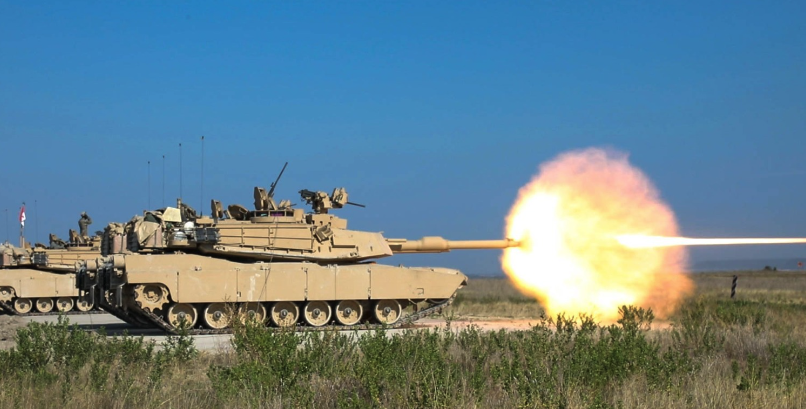TL;DR
- Military commanders set clear goals and objectives, aligning their teams for success, which is essential in business leadership.
- Leading by example builds trust, credibility, and respect, creating a culture of excellence in the workplace.
- Effective communication, similar to military operations, is vital for minimizing misunderstandings and improving collaboration.
- Empowering high-performing teams and embracing adaptability fosters innovation and resilience.
- Continuous learning and well-being initiatives enhance leadership effectiveness, employee loyalty, and business growth.
Leadership is a critical aspect of any successful organization. Whether you’re leading a team in the military or running a business, effective leadership skills are essential for achieving goals, fostering teamwork, and overcoming challenges. Military commanders, with their experience in high-stakes environments, have honed invaluable leadership strategies that can be adapted to the business world. Today, we will explore eight leadership lessons from military commanders that you can apply to your business for improved performance, growth, and success.

Set Clear Goals and Objectives
Military commanders understand the importance of setting clear goals and objectives. They define a clear mission and ensure that every member of their team understands and is aligned with it. Similarly, in business, it’s crucial to establish well-defined goals that are specific, measurable, attainable, relevant, and time-bound (SMART). By setting clear objectives, leaders can provide a sense of direction and purpose, inspiring their teams to work towards a common vision.
Lead by Example
One of the most powerful leadership lessons from military commanders is leading by example. Effective military leaders never ask their troops to do something they wouldn’t do themselves. They embody the values and principles they expect from their subordinates. This approach builds trust, credibility, and respect. In the business world, leading by example means being a role model for your team. By demonstrating the behaviors and work ethic you expect from others, you create a culture of excellence and motivate your employees to give their best.
Foster Effective Communication
Communication is a lifeline in military operations, and it is equally vital in the business realm. Military commanders emphasize the importance of clear, concise, and timely communication. They ensure that information flows freely, up and down the chain of command, and within teams. In business, effective communication minimizes misunderstandings, enhances collaboration, and boosts productivity. Leaders should encourage open dialogue, active listening, and the use of various communication channels to keep everyone informed and engaged.
Build and Empower High-Performing Teams
Military commanders understand that success depends on the strength of their teams. They invest time in building cohesive units, training individuals to excel in their roles, and fostering a sense of camaraderie. In business, leaders should focus on assembling high-performing teams by hiring the right people, providing them with the necessary resources, and promoting collaboration. Empowering team members through delegation and trust enables them to take ownership of their work, unleashing their full potential.
Adaptability and Flexibility
Military commanders operate in dynamic and unpredictable environments. They understand the importance of adaptability and flexibility. In business, leaders face ever-changing markets, technologies, and customer demands. Embracing an agile mindset allows leaders to respond swiftly to challenges and seize new opportunities. By encouraging a culture of innovation and adaptability, leaders can foster creativity, inspire resilience, and navigate through uncertainty with confidence.
Embrace Continuous Learning
Military commanders are lifelong learners, constantly seeking knowledge and refining their skills. They analyze past battles, study the strategies of successful leaders, and adapt their approach accordingly. In the business world, leaders should adopt a similar mindset of continuous learning. They should invest in their own professional development, stay abreast of industry trends, and encourage their teams to pursue growth opportunities. By fostering a learning culture, leaders create an environment that fosters creativity, agility, and innovation.
Make Decisions Based on Available Information
In high-pressure situations, military commanders must make critical decisions with incomplete or ambiguous information. They weigh the risks, analyze available data, and trust their judgment to make informed choices swiftly. In business, leaders often face similar situations where decisive action is necessary. By embracing a calculated risk-taking mindset, leaders can make timely decisions based on the information at hand. They should encourage their teams to be proactive problem solvers and empower them to make informed decisions within their spheres of responsibility.
Take Care of Your People
Military commanders prioritize the well-being of their troops. They understand that the success of any mission depends on the physical and mental resilience of their soldiers. In business, leaders should similarly prioritize the well-being of their employees. By fostering a supportive work environment, providing opportunities for growth, and recognizing their contributions, leaders can cultivate loyalty, commitment, and a sense of belonging. Investing in employee well-being leads to increased productivity, reduced turnover, and a positive organizational culture.
Conclusion
The leadership lessons from military commanders are transferable and highly valuable in the business world. By setting clear goals, leading by example, fostering effective communication, building high-performing teams, embracing adaptability, continuous learning, making informed decisions, and prioritizing employee well-being, leaders can drive their businesses toward success. By incorporating these lessons into your leadership style, you can inspire and motivate your team to achieve greatness, overcome challenges, and thrive in an ever-evolving marketplace. Remember, great leaders are not born; they are developed through continuous self-improvement and a commitment to lead with purpose, integrity, and resilience.
Resources on Military Strategy
Here is a list from Amazon that contains books on Military Strategy.


